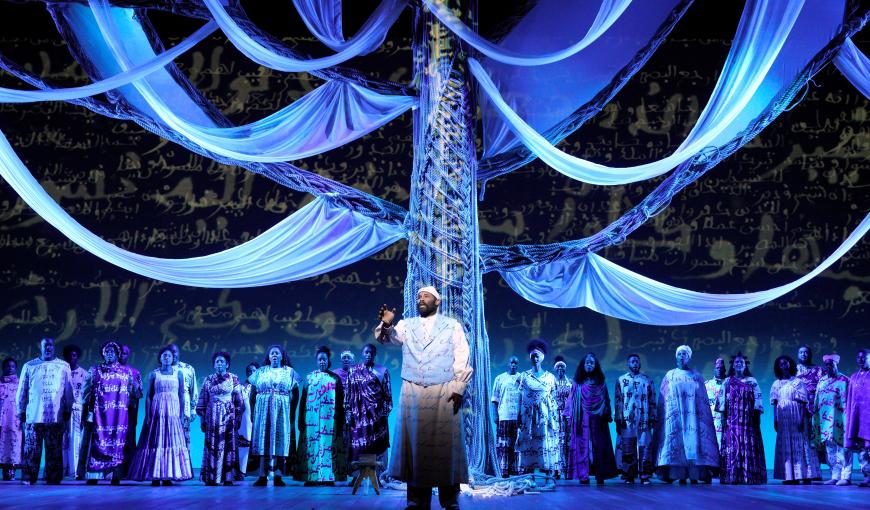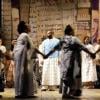
When Rhiannon Giddens and Michael Abels’s opera Omar premiered at the Spoleto Festival in May last year, it was an immediate success with audiences and critics. At the LA Opera premiere in October 2022, the show sold out and again fans were ecstatic. Richard S. Ginell, writing for SFCV, said, “While it’s common and fashionable in these post-George Floyd days to condemn American racism past and present in works of art, we don’t often see it done in such nuanced terms.” He praised the opera’s “simplicity and directness” its breadth of musical inspiration and reference, calling it “a true folk opera.”
The opera’s triumph is far from over, however: the production has just played at Carolina Performing Arts (February), Boston Lyric Opera (May), and will come to the SF Opera stage in fall, 2023 and the Lyric Opera of Chicago after that. The Ojai Festival, where Giddens is serving as this summer’s music director, has commissioned a concert version that will premiere there, in June.
And last week, Omar won its creators the Pulitzer Prize in Music. In its citation, the committee wrote:
a musical work that respectfully represents African as well as African American traditions, expanding the language of the operatic form while conveying the humanity of those condemned to bondage. …
This sweeping new work draws inspiration from the 1831 autobiography of Omar ibn Said, beginning long before the West African scholar was forced to board a ship bound for Charleston, South Carolina — the site of his initial enslavement. Pulling from a wealth of sources—including historical texts found in Carolina’s Louis Round Wilson Library — Omar tells a profound story of strength, resistance, and religious conviction in the face of harrowing circumstances. And, according to Giddens, it goes beyond a simple retelling to tackle issues that will resonate with a wide range of contemporary audiences.
Though Said’s memoir ends some 30 years before his eventual death in Fayetteville, North Carolina, Omar transcends bare biographical facts to fully realize the record of his life and his steadfast Muslim faith. The rich, bubbling score combines West African traditions and traditional opera instrumentation to illuminate the lives of Omar ibn Said and those who came into his orbit.”
Giddens and Abels were excited to learn of the award. In a brief conversation with the New York Times’ Joshua Barone, Giddens said she hopes the award leads to a recording of the whole work. With the furor Omar has created so far, it’s a fair bet the album would sell.




